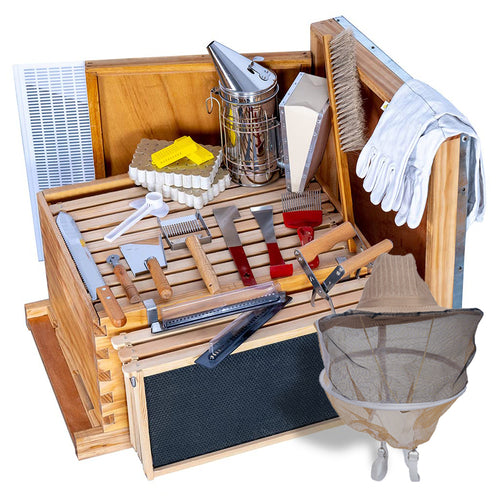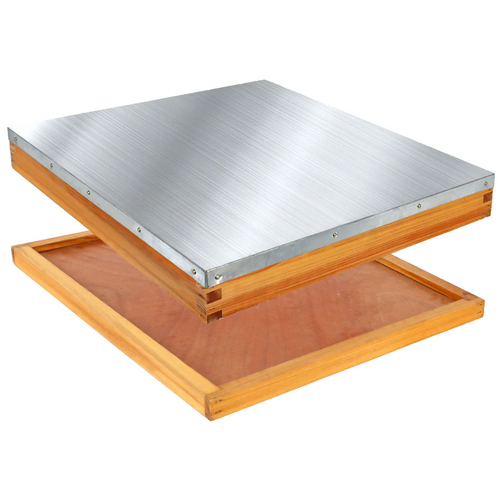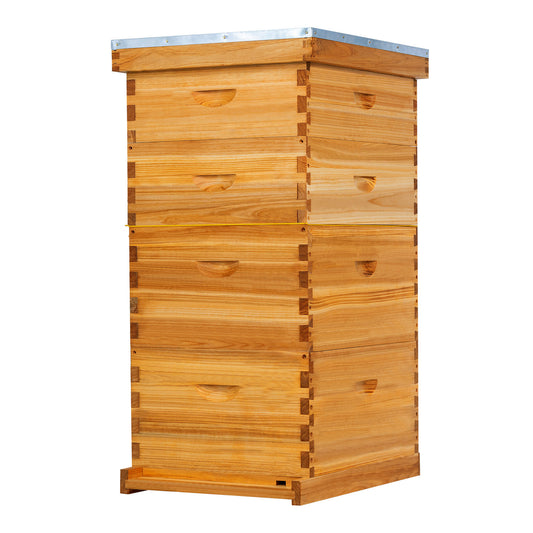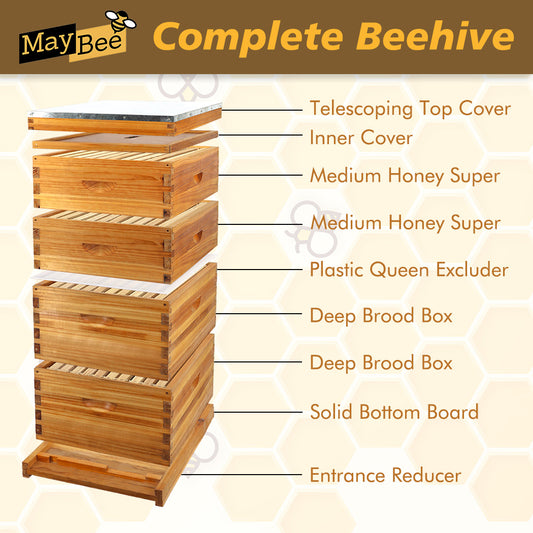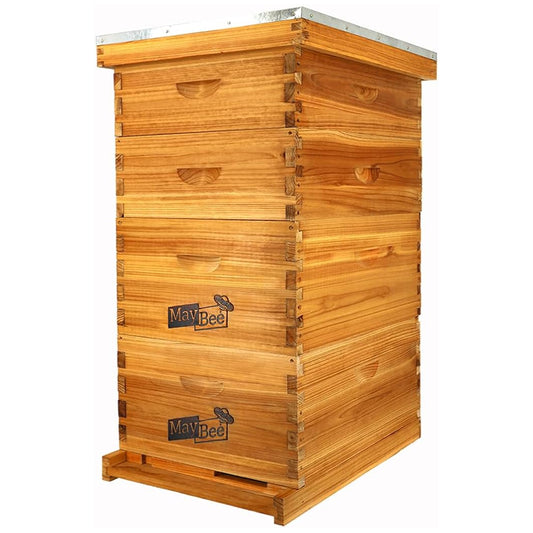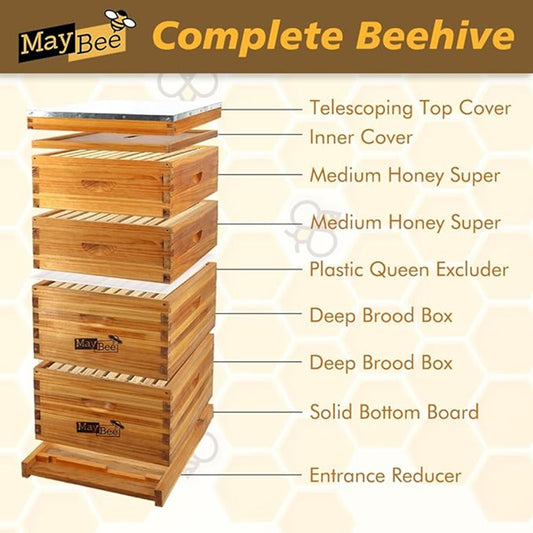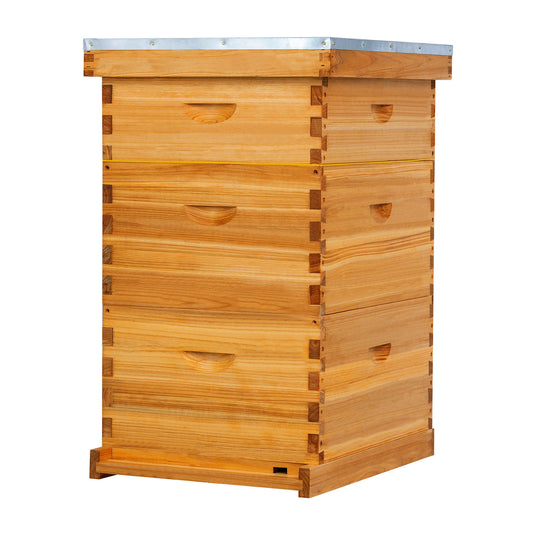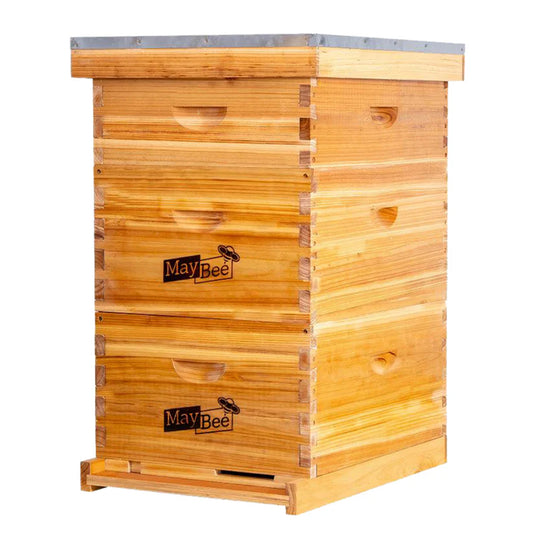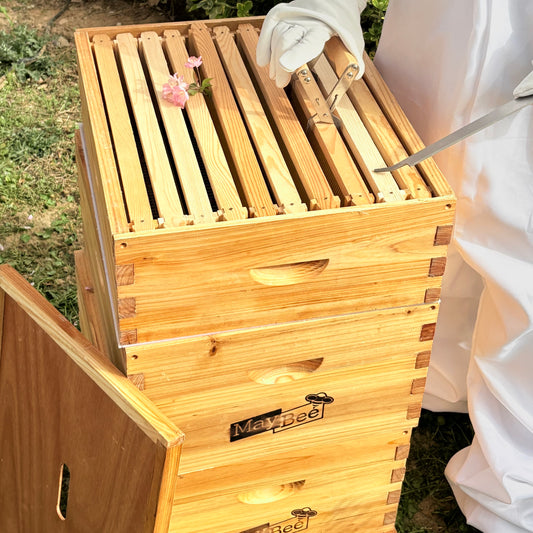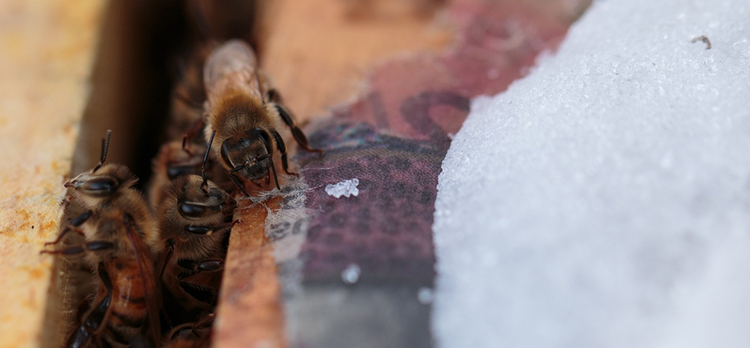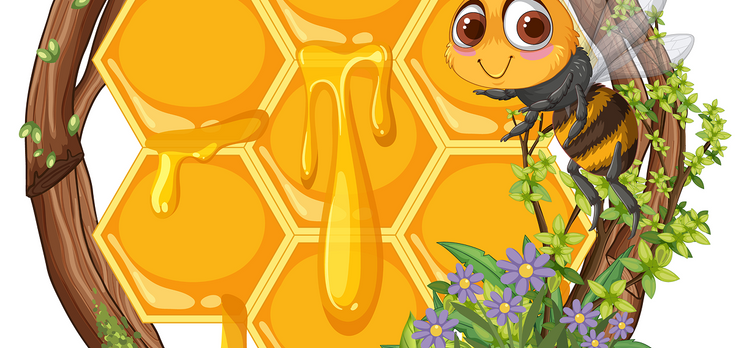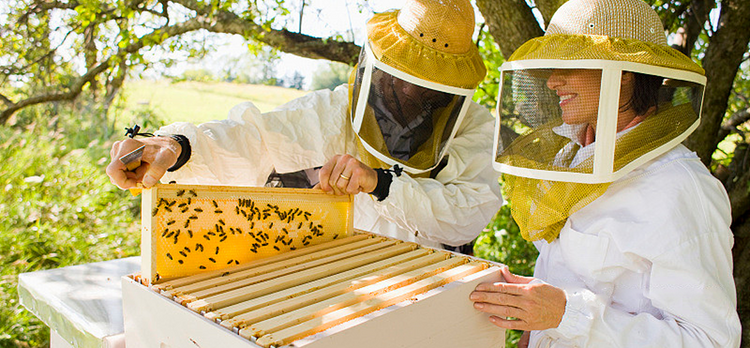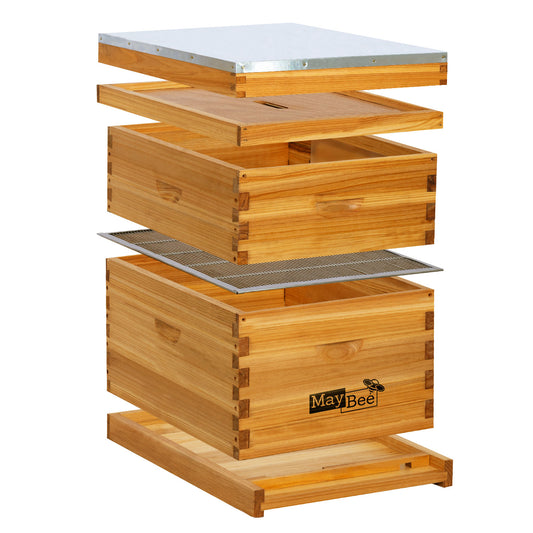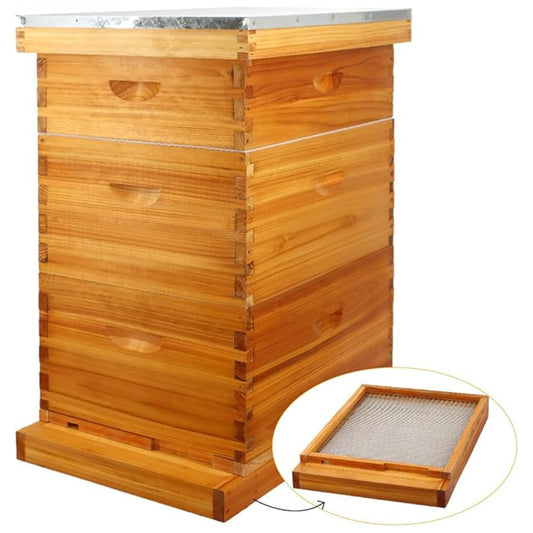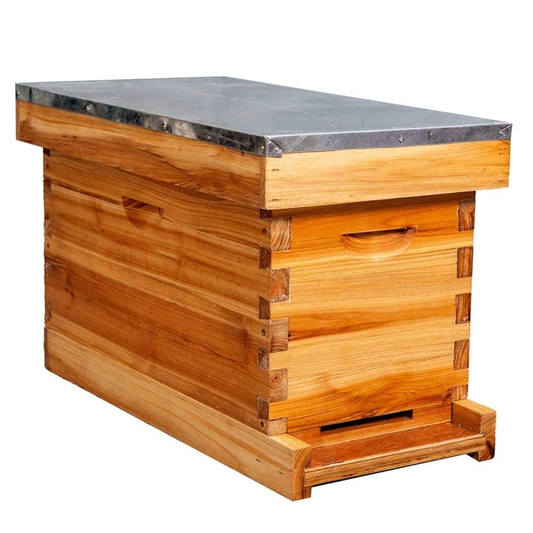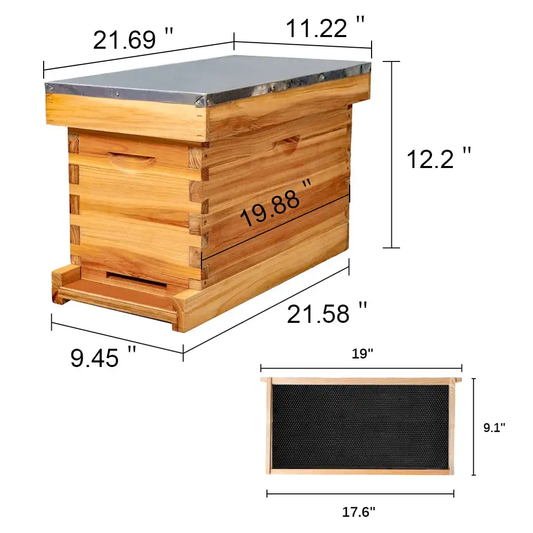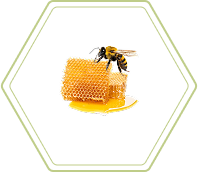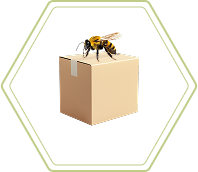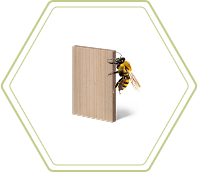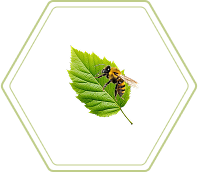The Fascinating World of Beekeeping: From Beginner to Expert

The Fascinating World of Beekeeping: From Beginner to Expert
Bees, those busy little creatures, not only provide us with delicious honey but also play a crucial role in our ecosystem. Beekeeping is not only a rewarding hobby but also an activity that positively impacts the environment. In this blog, I'll guide you through the basics and techniques of beekeeping, helping you progress from a beginner to an expert.
Why Keep Bees?
1.Ecological Balance: Bees are essential pollinators, crucial for the growth of crops and wild plants.
2.Healthy Bee Products: Besides honey, bees provide beeswax, royal jelly, propolis, and more.
3.Engaging Hobby: Observing bee behavior and colony dynamics is fascinating and educational.
Getting Started with Beekeeping
1.Learn the Basics: Read books, watch videos, and understand bee biology and beekeeping techniques.
2.Choose the Right Bee Species: Different species have different traits; beginners often choose the gentle Italian bee.
3.Purchase Beekeeping Equipment: This includes hives, bee tools, beekeeping suits, gloves, and veils.
Setting Up the Hive
1.Choose a Location: Place hives in sunny, sheltered areas near water sources. Keep them away from people and animals for safety.
2.Install the Hive: Place the hive on a stand to prevent moisture. Ensure the entrance faces southeast for optimal sunlight.
Introducing Bees
1.Purchase Bee Colonies: Buy colonies from local beekeeping suppliers or associations.
2.Transfer the Colony: Carefully transfer the colony into the hive, ensuring the queen enters safely.
Daily Management
1.Regular Inspections: Check the colony every one to two weeks to ensure the queen's health and the absence of diseases.
2.Supplement Feeding: Provide sugar water or pollen supplements after the flowering season or when nectar is scarce.
3.Disease Control: Regularly check for common bee diseases like Varroa mites and American foulbrood, and treat them promptly.
Harvesting Honey
1.Timing: Harvest during peak honey production, usually in late summer or early autumn.
2.Method: Use a honey knife and extractor to ensure clean and hygienic honey collection.
3.Storage: Store honey in dry, sealed containers away from direct sunlight and high temperatures.
Challenges and Joys of Beekeeping
1.Climate Impact: Weather changes can affect bee activity and health.
2.Disease Management: Prompt detection and treatment of diseases are crucial.
3.Harvest Joy: Seeing a healthy colony and harvesting abundant honey brings unparalleled satisfaction.
Conclusion
Beekeeping is a way to reconnect with nature and contribute to the environment. Through careful care and management, you can enjoy sweet honey and play a part in ecological conservation. If you're interested in beekeeping, start your journey today!
Bees, those busy little creatures, not only provide us with delicious honey but also play a crucial role in our ecosystem. Beekeeping is not only a rewarding hobby but also an activity that positively impacts the environment. In this blog, I'll guide you through the basics and techniques of beekeeping, helping you progress from a beginner to an expert.
Why Keep Bees?
1.Ecological Balance: Bees are essential pollinators, crucial for the growth of crops and wild plants.
2.Healthy Bee Products: Besides honey, bees provide beeswax, royal jelly, propolis, and more.
3.Engaging Hobby: Observing bee behavior and colony dynamics is fascinating and educational.
Getting Started with Beekeeping
1.Learn the Basics: Read books, watch videos, and understand bee biology and beekeeping techniques.
2.Choose the Right Bee Species: Different species have different traits; beginners often choose the gentle Italian bee.
3.Purchase Beekeeping Equipment: This includes hives, bee tools, beekeeping suits, gloves, and veils.
Setting Up the Hive
1.Choose a Location: Place hives in sunny, sheltered areas near water sources. Keep them away from people and animals for safety.
2.Install the Hive: Place the hive on a stand to prevent moisture. Ensure the entrance faces southeast for optimal sunlight.
Introducing Bees
1.Purchase Bee Colonies: Buy colonies from local beekeeping suppliers or associations.
2.Transfer the Colony: Carefully transfer the colony into the hive, ensuring the queen enters safely.
Daily Management
1.Regular Inspections: Check the colony every one to two weeks to ensure the queen's health and the absence of diseases.
2.Supplement Feeding: Provide sugar water or pollen supplements after the flowering season or when nectar is scarce.
3.Disease Control: Regularly check for common bee diseases like Varroa mites and American foulbrood, and treat them promptly.
Harvesting Honey
1.Timing: Harvest during peak honey production, usually in late summer or early autumn.
2.Method: Use a honey knife and extractor to ensure clean and hygienic honey collection.
3.Storage: Store honey in dry, sealed containers away from direct sunlight and high temperatures.
Challenges and Joys of Beekeeping
1.Climate Impact: Weather changes can affect bee activity and health.
2.Disease Management: Prompt detection and treatment of diseases are crucial.
3.Harvest Joy: Seeing a healthy colony and harvesting abundant honey brings unparalleled satisfaction.
Conclusion
Beekeeping is a way to reconnect with nature and contribute to the environment. Through careful care and management, you can enjoy sweet honey and play a part in ecological conservation. If you're interested in beekeeping, start your journey today!

